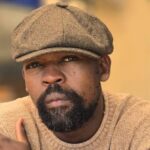Comedian Vincent Mwasia, better known as Chipukeezy, has recently voiced his opinion on the backlash against artists accepting government gigs, particularly following the performance of the music duo Wadaglizs at Mashujaa Day on October 20. In a video shared on social media, Chipukeezy urged Kenyans to reconsider their judgments towards those collaborating with the government, emphasizing that their work does not warrant condemnation.
Defending Artists and Government Collaboration
Chipukeezy’s comments come amidst a public uproar regarding the acceptance of government contracts by entertainers. The comedian, who has previously worked closely with the government, stated that he refuses to decline gigs merely to appease anti-government sentiments. He remarked, “I can’t refuse to take up a gig to please you online,” highlighting the need for artists to make a living without fear of backlash.
In his address, he encouraged those opposing the government to focus on constructive solutions rather than vilifying fellow artists. “Make a Kenya that has space for everyone, even those you don’t agree with,” he asserted, suggesting that diversity of opinion should be embraced rather than silenced.
On Protests and Their Impact
Chipukeezy also commented on the efficacy of protests, declaring that “no amount of maandamano (protests) will change your life as a person.” He questioned the value of being on the streets and challenged the notion that protests could lead to substantial change. He concluded, “Let the government work. The only thing we can do is vote for another one in 2027.”
His remarks have resonated with many, drawing a line between the realities of earning a living as an artist and the political landscape in Kenya. Chipukeezy’s stance has sparked conversations about the role of creatives in a politically charged environment and the importance of allowing artists the freedom to choose their engagements without fear of repercussion.
As Chipukeezy stands firm in his beliefs, he invites Kenyans to reconsider their perceptions of artists who collaborate with the government. By advocating for a harmonious society that respects differing viewpoints, he aims to foster a more inclusive dialogue about the intersection of art, politics, and public opinion in Kenya.














